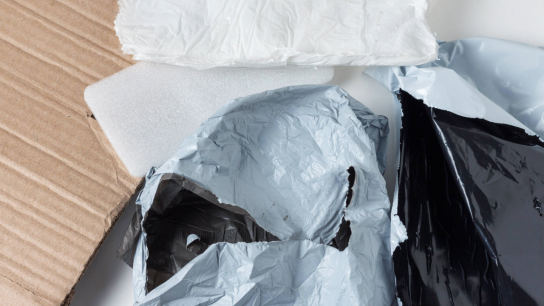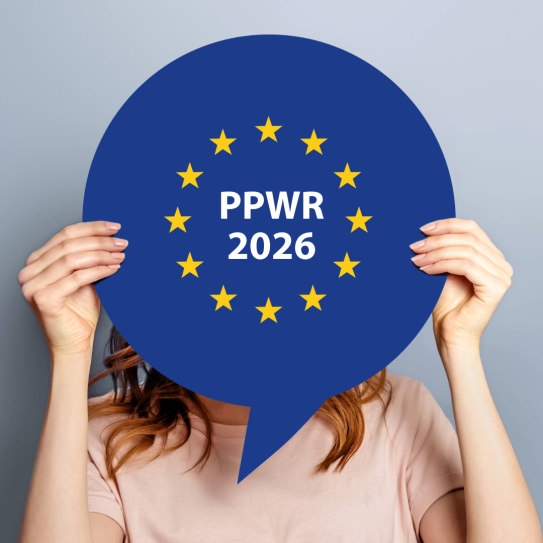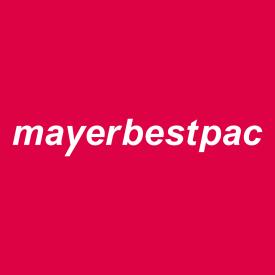CompanyIndustry
PPWR Checklist for 2026: What Companies Need to Know Now
The era of national unilateralism in packaging law is over. With the entry into force of the Packaging and Packaging Waste Regulation (PPWR) – officially Regulation (EU) 2025/40 – the European Union has recast the regulatory foundation for the single market. For procurement managers, e-commerce directors and logistics heads, this means, this means packaging is transforming from a C-part into a compliance-critical factor.
The Paradigm Shift: Why 12 August 2026 Is Your Deadline
Unlike the previous Directive 94/62/EC, the new PPWR applies directly as a Regulation in all Member States. No national transposition is required. While some targets only take effect in 2030 (such as the Design for Recycling obligation), 12 August 2026 is the decisive date for many operational processes as the general date of application.
Those who do not act now risk facing trade barriers from 2026/2030. The Regulation establishes a clear hierarchy: Prevention before Reuse before Recycling. For decision-makers in retail and logistics, three critical areas for action are emerging: the limitation of void space, recycled content targets for plastics, and exemptions for transport packaging.

The End of "Air Logistics": Article 24 and the 50% Hurdle
Arguably the most disruptive intervention in e-commerce logistics is Article 24 of the Regulation. It stipulates that grouped, transport, and e-commerce packaging must have a maximum void space ratio of 50%.
The regulatory definition is merciless here:
"Space filled by filling materials [...] shall be considered as empty space."
In plain text, this means: A standard cardboard box filled with air cushions or chips to fix a smaller product in place is considered empty. The previously common practice of "standard box + void fill" thus becomes a compliance risk.
The Fact-Based Solution: This is where the physical advantage of flexible paper shipping bags (such as our E-Commerce Shipping Bags) becomes apparent. Unlike rigid cardboard boxes, whose volume is defined by their outer edges, shipping bags adapt dynamically to the content. Void space tends towards zero, and void fill becomes obsolete. This not only ensures compliance with Article 24 but also eliminates unnecessary volumetric weight ("Dimensional Weight"), significantly reducing freight costs.
Avoiding the "Plastic Trap": Minimum Recycled Content (Article 7)
From 1 January 2030, Article 7 mandates a minimum share of Post-Consumer Recyclate (PCR) for almost all plastic packaging. For e-commerce bags, stretch films, and similar applications, this quota is 35%, rising to 65% in 2040.
For procurement, this harbours massive risks:
- Availability: Experts predict a "demand shock" and a shortage of high-quality PCR material.
- Cost: The decoupling of recyclate prices from virgin material prices ("Green Premium") will make plastic packaging permanently more expensive.
- Quality: Mechanically recycled films often exhibit optical or physical defects.
The Strategic Advantage of Paper: Paper-based packaging is exempt from these mandatory PCR targets. Since the paper recycling stream in Europe is already highly efficient (recycling rates over 80%), the PPWR regulates recyclability here primarily (Article 6), not the recycled content share. Switching to mono-material paper solutions is therefore an effective "hedge" against volatile plastic prices and supply bottlenecks.
Transport Packaging: The Saving "Cardboard Exemption" (Articles 26 & 29)
A widespread misunderstanding concerns the reuse quotas for transport packaging. Article 26 does indeed require that transport packaging (e.g. for B2B goods transfer) must be 40% reusable from 2030.
However, the final version of the Regulation contains a crucial exception that is essential for your logistics planning: Cardboard boxes are explicitly exempt from the reuse obligation for transport packaging.
This confirms that the EU recognises the ecological efficiency of fibre recycling. Companies therefore do not necessarily have to switch their supply chain to complex pool systems using plastic crates, provided they rely on cardboard boxes or robust paper solutions – which explicitly includes durable e-commerce mailing bags. As paper-based solutions, these fall under the same logic of material recycling and remain permissible as efficient single-use solutions, without the need to establish complex return logistics for reuse systems.
Your PPWR Roadmap: Action Areas by 2026
To be "PPWR-Ready", we recommend the following steps based on the new legal realities:
- Conduct a Void Space Audit: Analyse your top sellers. If you regularly ship more than 40-50% air (including void fill), switching to flexible shipping bags or automated cut-to-size solutions is mandatory.
- Check Material Substitution: Identify plastic packaging in your portfolio. Can you guarantee the availability of 35% PCR by 2030? If not, examine switching to paper (e.g. eCommerce Shipping Bags).
- Ensure Recyclability: Pay attention to mono-materials. Composites (paper with plastic windows) run the risk of falling into poor recycling classes (D or E) from 2030, which is tantamount to a ban. Use pure kraft paper solutions.
- Customer Communication: Use features like double adhesive strips for returns. While this does not formally contribute to the reuse quota, it contributes to waste prevention and improves the Customer Experience.
Conclusion: Act Instead of React
The PPWR is not purely an environmental law; it is an efficiency driver. Those who take the requirements on void space and material choice seriously will inevitably optimise their storage and transport costs. mayer-bestpac GmbH stands ready to support this transformation process with technical expertise and scalable capacities. Future-proof your supply chain for 2026.
As a specialised partner for flexible fibre packaging, we offer solutions that not only meet the strict requirements of the PPWR but also proactively streamline your logistics processes. We understand the technical depth of the regulation and translate it into legally secure, operational advantages for your company.
Speak to our expert team today about a no-obligation portfolio audit and find out how you can minimise compliance risks by switching to intelligent paper solutions.
Comments
0No comments yet
Information on the processing of your data according to Art. 13 EU-DS-GVO, in particular on your rights, can be found in our privacy policy. This website is protected by reCAPTCHA and the privacy policy und terms of use of Google apply.
You might also be interested in these

Aus mayer-network wird mayer-bestpac – ein Name, der verbindet
21.03.2025 – Wir schreiben ein neues Kapitel: Seit dem 21. März 2025 firmieren wir offiziell unter dem neuen Namen mayer-bestpac GmbH.
Die Mayer-Gruppe wird Rückensponsor der TSG Hoffenheim Frauen
Oktober 25, 2025 – Mayer-Gruppe & TSG Hoffenheim Frauen: Wir vertiefen unsere Partnerschaft als offizieller Rückensponsor.
Dualer Master – DHBW CAS und mayer-digital
11.08.2020 – mayer-digital ist dualer Partner der DHBW und startet den ersten dualen Master in Kooperation mit dem Center for Advanced Studies der Dualen Hochschule Baden-Württemberg (DHBW CAS) im Bereich Wirtschaftsinformatik.







